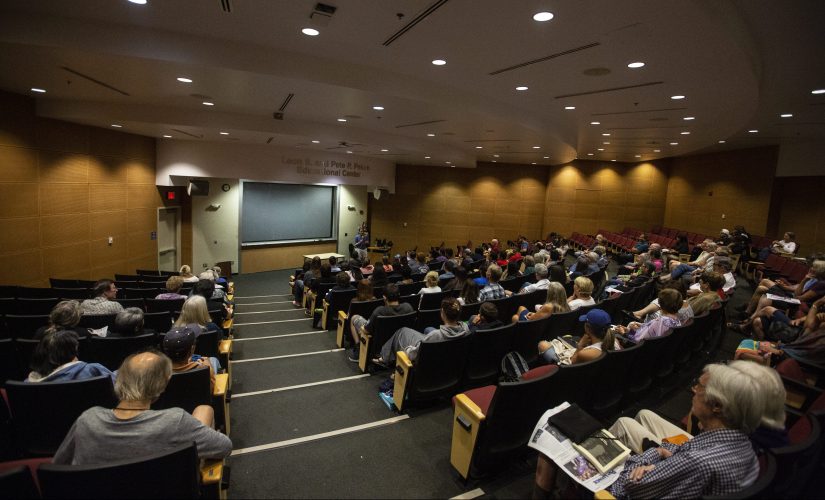Fresno State’s CineCulture’s latest film showing dove into the topics of abuse and mental illness in Kenya.
Presented last Friday, March 6, was “Lusala,” directed by Mugambi Nthiga.
The film tells the story of Lusala, a young Kenyan man who was born into poverty and suffered physical abuse from his biological father. After running away, he was adopted by an affluent Nairobi family.
Though he and his adoptive father, Onesmus, formed a strong bond, Lusala’s relationship with his adoptive mother, Beatris, was strained.
“I was promised a normal child,” Beatris said in the film.
When Lusala reached his adult years, the trauma from his past resulted in a mental illness, but his family did not know how to cope with it or help Lusala, which resulted in them hiding it from their community and even from Lusala himself.
Lusala’s parents encouraged him to move out of the family home into his own apartment and make his way in the world, but in doing so Lusala found the trauma of his past catching up with him and altering his life in profound ways.
This trauma manifested in visions and hallucinations of his younger sister Bakhita, who died in their attempt to escape their father.
“You abandoned me, but you won’t abandon me ever again,” Bakhita said in the film, and she held true to her word.
In the beginning of the film, Bakhita was an inconstant presence, but as the film progressed, she tightened her hold on Lusala’s life. Lusala found himself feeling isolated and being driven to act in ways he never did before, including resorting to violence.
Lusala wanted to free himself of Bakhita, who still influenced his life, but didn’t know how.
“You need me,” Bakhita said.
Lusala’s family struggled to understand his mental illness and how they could help him. In the film’s conclusion, however, the family was able to come together to support and care for him through it.
When Onesmus was questioned by a friend about his decision to adopt Lusala, Onesmus asked “Can you ever do enough?”
After the film ended, the audience had the opportunity to ask questions and discuss the film. The discussant for the night was Maurice Ndole, a freelance journalist and Fresno State alumnus who was born in Kenya.
One student pointed out the use of silence and cinematography in the film.
According to Ndole, “Lusala” was filmed in Nairobi, and she also highlighted how in the film, characters speak in Shang — a combination of English and Swahili.
“In Kenya, is mental illness a topic that comes up a lot?” a student asked.
Ndole said that in Kenya, mental illness isn’t often discussed and that many people try to hide it. As for Lasala in the film, he said, “There is no intervention.”
According to Ndole, mental illness is a taboo subject in Kenya.
“We need to figure out a way to support people with mental illness,” he said.
A member of the audience said, “Social support was the one variable that was salvation to him.”
When Ndole was asked what he thought the message the film’s writers were trying to send, he said that film highlights child abuse and that there are “some very strong themes on how to handle mental illness.”
CineCulture meets at 5:30 p.m. every Friday in the Peters Education Center Auditorium. The events are free for students and the general public.
The next film on March 13 will be “Left on Pearl,” presented by executive producer Rochelle Goldberg Ruthchild.





